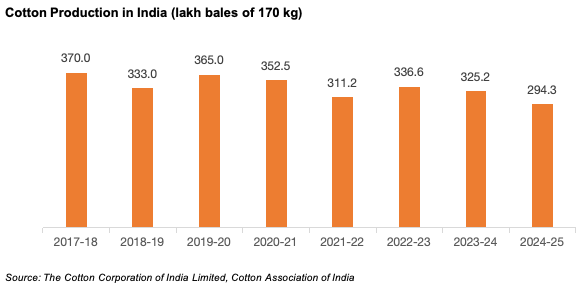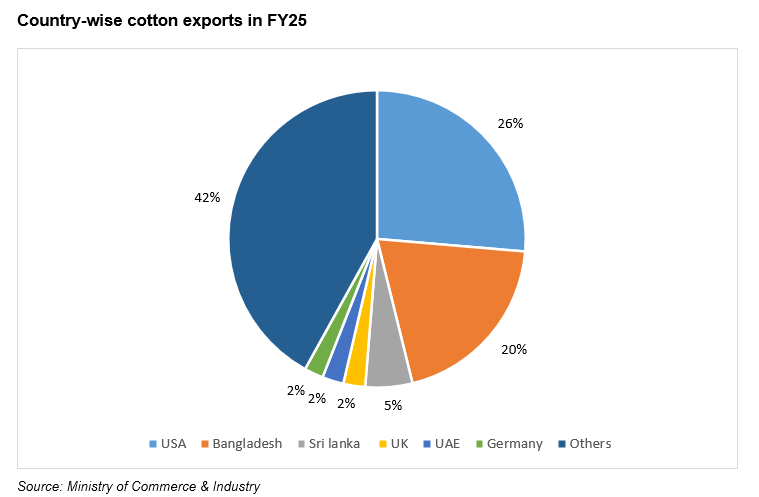Government Initiatives
The government has been implementing various policy initiatives and schemes to encourage cotton spinning millers in the country, including the announcement of key reforms under a Special Package that includes additional incentives under the Amended Technology Upgradation Fund Scheme (ATUFS), relaxation of Section 80JJAA of the Income Tax Act, and the introduction of fixed-term employment for the apparel sector. Under the Market Access Initiative (MAI) Scheme, the government offers rebates on state and central taxes and levies that are integrated into production, as well as aid to exporters. Schemes like SAMARTH (Scheme for Capacity Building in the Textile Sector) aim to address the shortage of skilled workers in the textile sector with a target of training 10 lakh people. The Cott-Ally mobile app was created to help farmers by providing information on minimum support prices (MSP), locating nearby procurement centers, tracking payments, and sharing best farming practices.
The Union Budget 2025-26 has announced a five-year Cotton Mission to increase cotton productivity especially extra-long staple varieties. Science & Technology support will be provided to farmers under this Mission. The Mission is in line with the 5 F principle and will increase income of the farmers and augment a steady supply of quality cotton. By boosting domestic productivity, this initiative will stabilise raw material availability, reduce import dependence and enhance the global competitiveness of India’s textile sector, where 80% of capacity is driven by MSMEs.
The Government of India launched Mega Investment Textiles Parks (MITRA) during the Union Budget for 2021-22 under which seven textile parks will be established over a period of three years. This will enable the textile industry to become globally competitive, boost employment generation and attract large investments. Additionally, the Confederation of Indian Textile Industry (CITI), one of the leading industry chambers of the textile sector in India has been working across 1,700 villages of Rajasthan, Madhya Pradesh, and Maharashtra in association with about 90,000 farmers to improve yield and production of cotton in a sustainable way.








